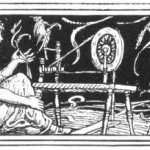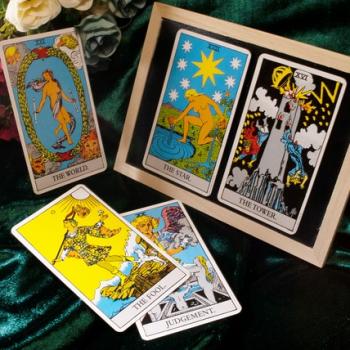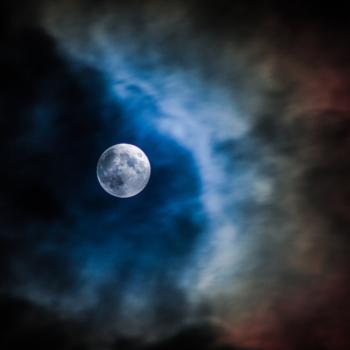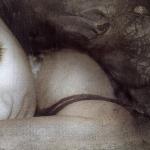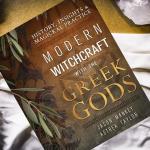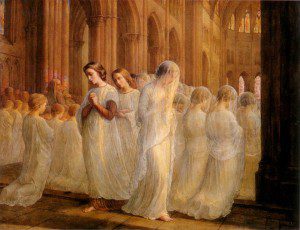 To conclude this discussion of the “Invocation of the Graces,” I’d like to present an outline of the charm and the virtues and powers it grants.
To conclude this discussion of the “Invocation of the Graces,” I’d like to present an outline of the charm and the virtues and powers it grants.
In the first verse, Brighid bathes the recipient’s palms and face in a special drink of “fiery water” made of milk mixed with berry wine and honey.
In the second verse, the fiery water grants nine virtues or powers: the virtues of form, voice, fortune, goodness and wisdom, victory over poverty, the virtue of choice womanhood, the virtue of true beauty, and the virtue of good speech.
In the third verse, the fiery water grants the ability to dominate all enemies, rendering them silent and submissive.
In the fourth verse, the fiery water grants eight ethical empowerments, giving the recipient of the charm the ability to offer comfort, shelter, guidance, support, sanctuary, protection, refreshment and healing to those who need it.
In the fifth verse, the fiery water grants the qualities of eight feminine powers: enchantment, virtue, faith, deeds, elegance, character, boldness and charm.
In the sixth verse, the fiery water grants powers and virtues drawn mostly but not exclusively from the natural world. These virtues are a bit more abstract, but include qualities such as good humor, sunniness, hospitality, a sense of direction, light-footedness, high-spiritedness, elegant dignity and love.
Some versions of the charm include verses granting a number of worldly benefits such as a good lover or plenty of nourishing food. Others include verses granting protection from weapons, malicious spirits and other dangers. Some include a verse granting the powers of celestial bodies such as the sun, moon and stars.
As mentioned previously, the “graces” could be seen as a system of virtue ethics based on an idealized femininity, in contrast to the idealized masculinity of heathenism’s “nine noble virtues.” By “femininity” and “masculinity” I don’t mean the biology of having a female or male body, and neither did the Highlanders who used this charm in the past — otherwise they wouldn’t have recited it over both boys and girls. Instead, I’m using “femininity” to refer to a certain type of energy, the energy of Brighid. The “nine noble virtues” of heathenism are equally virtuous for both men and women but they express a more “masculine” energy. Similarly, the nine “victories” of this charm are equally victorious for both women and men, but they express a more “feminine” energy.
By “femininity” I also don’t mean a set of stereotyped expectations of passive or proper behavior. The charm grants the courage of Maebh, after all, and Maebh was anything but passive or proper. By including Maebh in the list of feminine powers, the charm values the courage and even the reckless ferocity of the warrior — but it does so in balance and proportion with other virtues that emphasize compassion, beauty and a gentle spirit.
The feminine energy of the “Invocation of the Graces” is the power of Brighid in action in the world. To understand this power and to live in imitation of it is to experience victory, enabling you to do good in the world by serving others with compassion and to defeat evil by rendering it silent and powerless. Just as devoted Christians seek to live in imitation of Christ as revealed to them in the Gospel story, devotees of Brighid can live in imitation of Her graces, as revealed in this Gaelic charm.
Loop of Brighid is published on alternate Thursdays. Follow it via RSS or e-mail!


